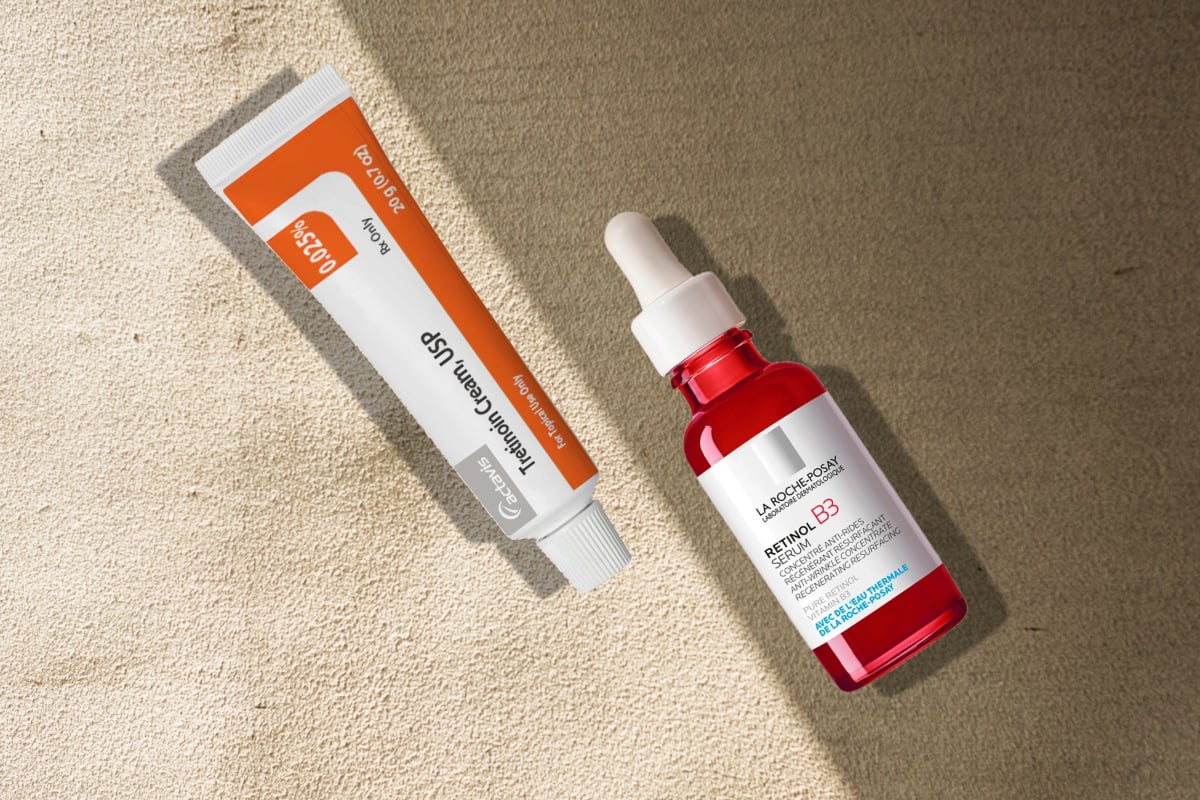Whenever you think about hydrating skincare ingredients, it’s probably hyaluronic acid the first that crosses your mind. Although this one is the world’s favorite to plump, hydrate, and smooth, a hidden gem is about to steal the spotlight. Enter: Panthenol (or vitamin B5). Targeting a bevy of concerns—dehydration, roughness, dullness, and beyond—panthenol is the gentle multitasker that can give you healthy skin. Read on because this post explores everything about panthenol and its skincare benefits.
What is panthenol?
Panthenol is a compound derived from pantothenic acid, an essential nutrient the body requires for various functions (like converting food into energy). When applied to the skin, it transforms into vitamin B5 and works as a humectant to attract and retain moisture. Just like hyaluronic acid. However, compared to its counterpart, panthenol is also an emollient, which means it works to soften the skin surface, reduce redness, and restore the skin’s barrier function.[1]
In skincare products, panthenol can be found in 1 to 5% concentrations. Look for provitamin B5, butanamide, and d-pantothenyl alcohol, which are all alternative names given to panthenol.
The benefits of panthenol for skin
Hydrates
You can think of panthenol as a moisture sponge that absorbs water from the air, pulls it into the skin, and locks it there. It provides long-lasting hydration that leaves your skin deeply moisturized and nourished. A study that ran for one month discovered that using foaming drying detergents (SLSs) on the skin resulted in moisture loss, but when one percent panthenol was introduced, it significantly reduced dehydration and maintained the skin’s integrity.[2]
Boosts the skin’s barrier
Panthenol is an emollient that interacts with the lipids (such as ceramides) that form the protective barrier on the outer layer of the skin. So it has the ability to restore barrier function and reduce transepidermal water loss, which means your skin can retain more moisture and combat dryness.
Encourages skin recovery
If you have a wound or irritated skin, panthenol can help. It plays a crucial role in promoting the growth of fibroblasts (the type of cells in the skin that produce skin-strengthening and wound-healing proteins).[3][4]
Soothes and calms
Panthenol isn’t just a moisture magnet; it’s also an anti-inflammatory agent. It can be effective in reducing redness caused by sun exposure or skin conditions, calming inflamed pimples, and relieving itchiness.
Panthenol side effects
Panthenol is well tolerated and gentle on the skin, so you can use it regardless of whether your skin is sensitive or has conditions such as acne and eczema. Side effects to topical panthenol are also very rare. However, in a thousand to one chance, these can include contact dermatitis and mild irritation. But again, it’s very unlikely to have bad reactions from panthenol since it’s used in small amounts in skincare products. Regardless, you should still perform a patch test when introducing a new product into your routine to check for possible adverse reactions or allergies.
How to use panthenol
You’ll find panthenol in various products, so you should use it as advised by the product at hand. Generally, you have to start by cleansing your face with a gentle cleanser to remove dirt, excess oil, or makeup. Pat your skin dry with a clean towel, but make sure it’s still slightly damp.
Now it’s time to apply the panthenol-infused product. Take a small amount and gently massage it onto your skin. The slightly damp skin has better absorption power, so panthenol can penetrate deeper and provide more benefits. After applying panthenol, give it a few moments to fully absorb into your skin before following with other products.
Panthenol products that we recommend
- The Ordinary Hyaluronic Acid 2% + B5
- Cosrx B5 D-Panthenol Ampoule
- Purito B5 Panthenol Re-barrier Cream
- Medik8 Hydr8 B
- Allies Of Skin Molecular Barrier Recovery Cream Balm
Our sources
- National Library of Medicine National Center for Biotechnology Information, Panthenol
- Camargo FB Jr, Gaspar LR, Maia Campos PM. Skin moisturizing effects of panthenol-based formulations. J Cosmet Sci. 2011 Jul-Aug;62(4):361-70. PMID: 21982351.
- Gorski, Julian et al. “Dexpanthenol in Wound Healing after Medical and Cosmetic Interventions (Postprocedure Wound Healing).” Pharmaceuticals (Basel, Switzerland) vol. 13,7 138. 29 Jun. 2020, doi:10.3390/ph13070138
- Daisaku Kobayashi, Miho Kusama, Masaaki Onda, Norimichi Nakahata, The Effect of Pantothenic Acid Deficiency on Keratinocyte Proliferation and the Synthesis of Keratinocyte Growth Factor and Collagen in Fibroblasts, Journal of Pharmacological Sciences, Volume 115, Issue 2, 2011, Pages 230-234, ISSN 1347-8613.




![Does resveratrol in red wine benefit your skin? While sipping on a glass of red wine can be a delightful experience, relying on it for skincare benefits is not the best idea. Sure, red wine contains a smidge of resveratrol, but let's put things into perspective. The concentration of resveratrol in red wine is relatively low. Red wines, specifically Pinot noir from France, typically contain 0.361-1.972 mg of resveratrol per liter.[8] To hit that reference dose of 500mg of resveratrol, you'd need to drink a lot of wine. We're talking about downing anywhere from 100 to 1000 glasses per day. It's a scene straight out of a wine lover's wildest dreams, but definitely not the healthiest approach. Resveratrol Benefits for Skin](https://womensconcepts.com/wp-content/uploads/2022/03/Resveratrol-Benefits-for-Skin.jpg)
